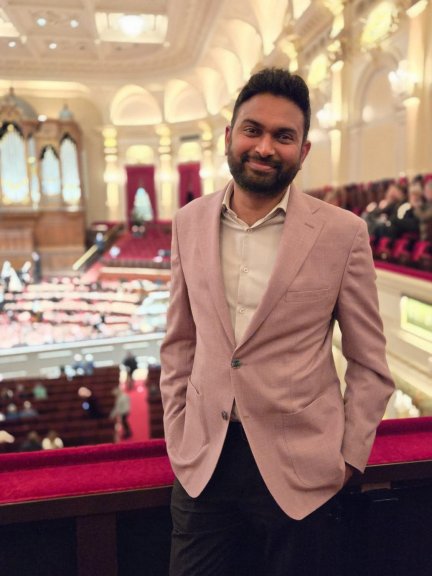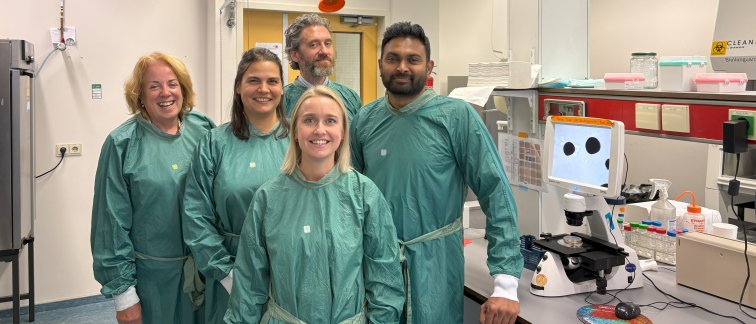Seize the opportunity! Until November 1, 2025, researchers from the Amsterdam Institute for Immunology and Infectious Diseases (AI&I) can submit proposals for the AI&I Collaboration Grant 2026. This grant supports interdisciplinary projects that push the boundaries of infectious diseases and immunology research.
This year, one of the AI&I collaboration grants was awarded to the project “Decoding host modulation by brain-altering pathogens using human neural organoid models,” led by Dr. Adithya Sridhar and Dr. Rens Zonneveld from the Departments of Medical Microbiology & Infection Prevention and Pediatrics. Their research focuses on Toxoplasma gondii, a protozoan parasite that infects human brain cells and may cause behavioral changes. The team is establishing T. gondii infection in human neural organoids, miniature brains grown from stem cells in the lab, to study how this infection affects the neurons.
Research focus
Since the project’s launch, the team has infected midbrain organoids with T. gondii, observing a low level of infection. The next steps involve expanding infection to forebrain organoids and analyzing changes in the host transcriptome and proteome, with a particular focus on glutamatergic and dopaminergic neurons.
Understanding how pathogens like T. gondii manipulate neural pathways could reveal new therapeutic targets. Currently, there are no treatments for chronic toxoplasmosis and severely immunocompromised patients may require continuous treatment to keep the parasite from damaging the tissues. Given the parasite’s reliance on host biology, deeper insights into host-pathogen interactions may also uncover mechanisms relevant to psychosocial disorders such as social anxiety and depression. In the long term, the researchers will explore whether these mechanisms can be targeted to treat such disorders.

The power of collaboration
The collaboration has enabled the team to merge unique skill sets that would not have been possible individually. While this synergy brings great potential, it also presents challenges. The project reflects both creativity and compromise:Adithya’s primary interest was rabies, while Rens sought an efficient in vitro culture system for T. gondii. Coming from diverse research backgrounds, the team first had to understand each other’s methodologies and adapt their approaches to incorporate best practices and address limitations. For example, fine-tuning of the appropriate biosafety regulations for co-culturing live parasites with human brain organoids required careful coordination.
The team’s advice for future collaboration grant applicants: ‘Think in advance about your experimental setup, as you will run into bottlenecks that force you to steer away from your usual workflow.’
Adding a touch of fun to their journey, the team enjoyed brainstorming ((no) pun intended) creative project titles and drawing inspiration from popular science fiction series like The Walking Dead, sparking curiosity and conversation among colleagues.
Interested in applying?
Submit your proposal before November 1, 2025 for a chance to receive the Collaboration Grant. More information can be found on this page.
Text: Esmée Vesseur, Adithya Sridhar and Rens Zonneveld
Learn more about our previous grant recipients:
AII collaboration grant in 2020, ENW-M NWO grant in 2022: the story of Nicole and Coen (October 2022)
Image: The Puppeteers team from left to right: Ellen Wentink – Bonnema, Renata Vieira de Sá, Nina Johannesson, Rens Zonneveld, and Adithya Sridhar.

